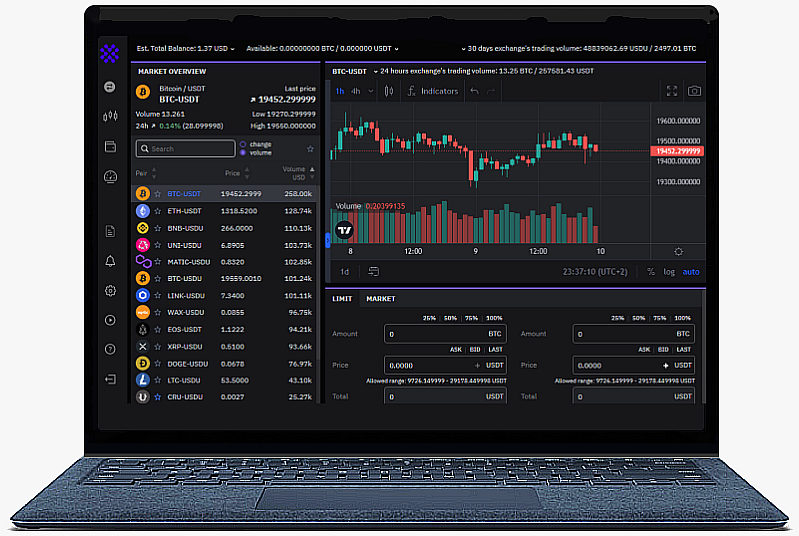Accredited InvestorsAltcoinAnatoli UnitskyAnti-Money Laundering (AML) In CryptoAPIArbitrageArtCoin TokenArticle DirectoryASICAuction Terminology GlossaryBasics of Stock Market InvestingBear MarketBest Crypto Payment Provider In the WorldBitcoinBlockchainBlockchain ConfirmationBlockchain Consensus MechanismBlockchain ForkBlockchain GlossaryBored Ape Yacht ClubBuild a Business That OutperformsBull MarketBuying SkyWay SharesByzantine Fault Tolerance (BFT) ExplainedCasascius CoinCentral Bank Digital Currency (CBDC)Centralized Crypto ExchangeCoinCoinsetCold WalletCollateralCommodity Futures Trading Commission (CFTC)Cross-Chain TechnologyCRUCrypto ExchangeCrypto GlossaryCrypto JokesCrypto Terms to KnowCrypto TickerCryptocurrencyCryptographyCryptojackingCryptounit BlockchainCryptounit GlossaryCryptounit ProgramdApp (Decentralized Application)Dead CoinDecentralized Exchange (DEX)Decentralized Finance (DeFi)Difference Between Bitcoin and EthereumDifferent Ways of Investing MoneyDigital CurrencyDistributed LedgerDo Your Own Research (DYOR)Dollar Cost Averaging (DCA)Dow Jones Industrial Average (DJIA)EncryptionERC-20ERC-721EthereumEvoScentFear Of Missing Out (FOMO)Fear, Uncertainty and Doubt (FUD)Fiat MoneyFNT Fintech CompanyGenesis BlockGlobal Unit PayGlossary of Banking TermsGlossary of Business TermsGlossary of Financial TermsHalvingHODLHot WalletHow Do I Start InvestingHow Rich is Satoshi Nakamoto?How to Create a BlockchainHow to Find Private InvestorsHow to Get Into FintechHow to Program Smart ContractsI Am Thrilled to Be a Part of This Global ProjectInitial Coin Offering (ICO)Initial Public Offering (IPO)Initial Token Offering (ITO)Innovation Basalt TechnologyInnovative Transportation TechnologiesInternational Bank Account Number (IBAN)Investing in Gold Mining StocksInvesting in Gold MiningJagerJoy of Missing Out (JOMO)Know Your Customer (KYC)LedgerLiquidity in CryptocurrencyMaker and Taker Fees in Crypto TradingMarket Capitalization (Market Cap)Meme CoinMetal Credit CardMetaMaskMillenials Now Have Access to Generational WealthMy Best Investment EverNew Digital EvolutionNFT GlossaryOff-Chain TransactionsOn-Chain TransactionsOpen Edition NFTPeer-to-Peer (P2P)Personal Loan GlossaryProbably the Best STO on the MarketProof of Stake (PoS)Real Estate Glossary of TermsReal Estate Investing GlossaryRebase TokenSecurities and Exchange Commission (SEC)Security Token ExchangesSecurity Token Offering (STO)Soulbound Decentralized Identities for Security TokensSoulbound ID Launch by Stobox Proves a SuccessSoulbound TokensStoboxStock Market GlossaryTestimonialsTether Platform and Token (USDT)UnitEx ExchangeUnitsky String TechnologiesUNTBUSDUValidatorWe Started Investing When We Were 25What are Blue Chip NFT?What are Blue Chip Stocks?What are Crypto Assets?What are Crypto Smart Contracts?What are CryptoPunks NFT?What are Digital Assets?What are Digital Collectibles?What are Gas Fees?What are Gas Wars?What are Hashmasks?What are Non Fungible Tokens?What are Non-Sufficient Funds (NSF)?What are Soulbound Tokens (SBT)?What are Stablecoins in Crypto?What are Transactions Per Second (TPS)?What are Utility NFTs?What are Utility Tokens?What Does Burning Crypto Mean?What Does Diamond Hands Mean?What Does Paper Hands Mean?What Does To The Moon Mean?What Does WAGMI Mean?What Happened to Satoshi Nakamoto?What is a 51% Attack?What is a Baby Boomer?What is a Backlink?What is a Banner?What is a Barcode?What is a Bid-Ask Spread in Crypto?What is a Block in Blockchain?What is a Block Reward?What is a Blockchain Address?What is a Blockchain Node?What is a Blockchain Oracle?What is a Blog?What is a Bond?What is a Bot?What is a Broker?What is a Business Accelerator?What is a Cash Cow?What is a Commercial Bank?What is a Commodity?What is a Con?What is a Credit?What is a Credit Limit?What is a Credit Rating?What is a Crypto Airdrop?What is a Crypto Bridge?What is a Crypto Scam?What is a Crypto Token?What is a Crypto Wallet?What is a Crypto Whale?What is a Crypto Winter?What is a Cryptocurrency Public Ledger?What is a Cryptocurrency Roadmap?What is a DAO?What is a Dark Pool?What is a Day Trader?What is a Dead Cat Bounce?What is a Default?What is a Derivative?What is a Digital Credit Card?What is a Fiscal Quarter?What is a Fungible Token?What is a Governance Token?What is a Grace Period?What is a Hard Fork?What is a Hot Wallet?What is a Hybrid Blockchain?What is a Hybrid PoW/PoS?What is a Joint Account?What is a Market Cap?What is a Merkle Tree in Blockchain?What is a Mining Farm?What is a Nonce? What is a PFP NFT?What is a POS System?What is a Prepaid Card?What is a Private Blockchain?What is a Private Key?What is a Public Blockchain?What is a Public Key?What is a Reserve Currency?What is a Ring Signature?What is a Routing Number?What is a Rug Pull in Crypto?What is a Safe Deposit Box?What is a Satoshi?What is a Security Token?What is a Seed Phrase?What is a Shitcoin?What is a Sidechain?What is a Soft Fork?What is a Spot Market?What is a State Bank?What is a SWIFT Code?What is a Tax Identification Number (TIN)?What is a Time Deposit?What is a Transaction Account?What is a Variable Interest Rate?What is a Virtual Assistant (VA)?What is a Virtual Card?What is a Virtual Currency?What is a Visa Card?What is a Whitelist in Crypto?What is a Whitepaper?What is Accounts Payable (AP)?What is AMA in Crypto?What is Amortization?What is an Accrual?What is an ACH Transfer?What is an Actuary?What is an Addendum?What is an Algorithm?What is an Angel Investor?What is an Annuity?What is an Asset?What is an ATM?What is an Atomic Swap?What is an Audit?What is an Avatar?What is an EIN?What is an Embargo?What is an Entrepreneur?What is an IDO (Initial Dex Offering)?What is an Interest Rate?What is an Internet cookie?What is an Investment Bank?What is an NFT Drop?What is an NFT Floor Price?What is an Ommer Block?What is an Orphan Block?What is an Outstanding Check?What is an Overdraft?What is Artificial Intelligence (AI)?What is B2B (Business-to-Business)?What is B2G (Business-to-Government)?What is Bartering?What is Bitcoin Dominance?What is Bitcoin Pizza Day?What is Blockchain Immutability?What is Blockchain Used For?What is BRICS?What is Business-to-Consumer (B2C)?What is C2C (Customer to Customer)?What is Capitalism?What is Catfishing?What is CFD Trading?What is Check Kiting?What is Cloud Mining?What is Communism?What is Content Marketing?What is Decentralization in Blockchain?What is DeFi in Crypto?What is Delisting?What is Depreciation?What is Digital Marketing?What is Diversification?What is Double Spending?What is Dumb Money?What is Dumping?What is Earnings Per Share (EPS)?What is Economics?What is Email Marketing?What is Equity?What is Etherscan?What is Fintech?What is Foreign currency?What is Forex?What is Fundamental Analysis (FA)?What is GameFi?What is Generative Art NFT?What is Gwei?What is Hard Currency?What is Hash Rate?What is Hashing in Blockchain?What is Inflation?What is Initial Game Offering (IGO)?What is Interest?What is Interest Income?What is Mainnet?What is Mastercard?What is Metaverse in Crypto?What is Mining in Cryptocurrency?What is Minting NFT?What is Mobile Banking?What is Money Laundering?What is NFT Alpha?What is NFT Metadata?What is NFT Rarity?What is NGMI Meaning?What is Nominal Interest Rate?What is Online Banking?What is Open-End Credit?What is OpenSea NFT Marketplace?What is Personal Identification Number (PIN)?What is Play-to-Earn?What is Polygon?What is Proof of Authority (PoA)?What is Proof of Work (PoW)?What is Public Key Cryptography?What is Pump and Dump?What is Quantum Computing?What is Refinancing?What is Retail Banking?What is Ripple?What is Sharding?What is Slippage in Crypto?What is Smart Money?What is Solvency?What is Soulbound ID?What is SSL?What is Staking in Cryptocurrency?What is Technical Analysis (TA)?What is Testnet?What is the Ask Price?What is the Better Business Bureau (BBB)?What is the Bid Price?What is the Dark Web?What is the InterPlanetary File System (IPFS)?What is the Gold Standard?What is the Lightning Network?What is the Prime Rate?What is the Sandbox?What is the Secondary Market?What is the World Bank?What is Tier 1 Capital?What is Tokenomics?What is TRC-20?What is Universal Banking?What is Unspent Transaction Output (UTXO)?What is Usury?What is Volatility in Crypto?What is Wash Trading?What is Web3?What is Whisper?What is XRP?What is Zero-Knowledge Proof (ZKP)?Who is Beeple?Who is Satoshi Nakamoto?Who is Vitalik Buterin?Why Tokenization is a Safe HavenWhy You Should Try Your Hand at Trading
Centralized Crypto Exchange (CEX)
- Home
- Cryptounit Glossary
- Centralized Crypto Exchange
To begin trading cryptocurrencies and other digital assets, using a Crypto Exchange is the most common approach. These exchanges, which can be either centralized or decentralized, are private platforms that allow for the exchange of cryptocurrencies for various other assets, including fiat currencies, digital currencies, and NFTs.

For those who are new to the world of cryptocurrency or prefer a reputable company, a centralized exchange may be the best option. On the other hand, for those who seek to trade lesser-known cryptocurrencies and have full control over their crypto wallet, a decentralized exchange is the only choice.
Centralized Crypto Exchange
A Centralized Crypto Exchange (CEX) is a company that provides a variety of services, including a crypto trading platform, account services, and customer support.
A CEX allows anybody with an internet connection to discover and deal with crypto assets and is appealing to many crypto users since it is more convenient and easier to use than a decentralized exchange (DEX).
It is owned and run by a private company, and participation requires users to join up and create an account. Centralized crypto exchanges allow crypto asset transactions between buyers and sellers by providing an online trading platform with an order book, which is a collection of buy and sell orders submitted by individual traders. UnitEx, Binance, Coinbase, Kraken, and Kucoin are some of the examples of centralized exchanges.
Buyers and sellers conduct business with one another on a cryptocurrency exchange. In other words, rather than purchasing cryptocurrency directly from the exchange, you do it through another user.
The exchange itself offers a location for those looking to acquire cryptocurrency and those who want to sell their existing cryptocurrency. It connects purchasers and vendors. When a buyer wants to purchase a cryptocurrency at a specific price and a seller wants to sell the same cryptocurrency at the same price, the exchange will match their orders.
The exchange serves as a central clearing counterparty. That is, all matched orders appear to be against the exchange rather than between the users directly. Because neither the buyer nor the seller knows who the other is, both sides benefit from anonymity.
Furthermore, as the central clearing counterparty, the CEX manages the whole transaction, ensuring that all obligations between buyer and seller are satisfied and the transaction is completed.
The exchange also serves as a custodian for any cash or cryptocurrency in your account. Some exchanges accept fiat currency deposits, while others solely accept cryptocurrencies. Once deposited, cash or cryptocurrency are in the possession of the exchange. This implies you're now relying on the exchange to keep your assets safe in the same way you'd rely on a bank's vault to keep your money safe.
Centralized Crypto Exchanges vs Decentralized Exchange
Centralized exchanges provide a platform for trading between fiat currency and cryptocurrency or between two different cryptocurrencies. While these exchanges cater to a wide range of transaction types, there exists a demand for another type of cryptocurrency exchange.
As an alternative, decentralized exchanges eliminate the presence of a middleman, creating a "trustless" environment for trades. These exchanges operate on a peer-to-peer basis and allow for transactions to be executed through smart contracts and atomic swaps without the need for an escrow service.
The key difference between centralized and decentralized exchanges lies in the existence of a middleman. Currently, centralized exchanges are more widely used and popular, but there has been a rise in the number of decentralized exchanges. It is possible that they may pose a threat to centralized exchanges in the future.
Advantages and Disadvantages of a Centralized Crypto Exchange
Advantages of Centralized Cryptocurrency Exchanges:
- User-friendly interface: Centralized exchanges provide a straightforward and easy-to-use platform for beginner investors to trade and invest in cryptocurrencies. Instead of navigating the complexities of crypto wallets and peer-to-peer (P2P) transactions, users of centralized exchanges can access their accounts, view account balances, and make transactions through websites and applications.
- Reliability: Centralized exchanges provide an extra level of security and reliability when it comes to transactions and trading. The transactions are facilitated through a centralized platform, offering greater peace of mind to investors.
- Leverage: Certain centralized exchanges offer the option of margin trading, where investors can borrow money from the exchange to increase their returns. However, this also amplifies the risk of losses.
Disadvantages of Centralized Cryptocurrency Exchanges:
- Hacking risk: Centralized exchanges are operated by companies that hold their customers' assets. Large exchanges can hold billions of dollars in crypto, making them targets for hackers and theft. For example, Mt.Gox, which was once the largest cryptocurrency exchange, suffered the theft of 850,000 bitcoins, leading to its collapse.
- High transaction fees: Unlike P2P transactions, centralized exchanges often charge high fees for their services and convenience. These fees can be particularly high when trading large amounts.
- Custody of digital assets and risk of fraud: Most centralized exchanges hold digital assets as custodians in their own digital wallets, rather than allowing the customer to store their private keys in their own digital wallet. While this is more convenient for trading, it also introduces the risk of the centralized exchange failing or committing fraud. Examples include the failure of TerraUSD and Luna, the bankruptcies of Three Arrows Capital, Voyager Digital, and the sudden collapse of FTX and Alameda Research.
Related Articles

Crypto Exchange
Crypto exchanges are changing the game for digital asset trading and investment. With many options available, choosing the right crypto exchange can be challenging due to the unique features and...

Decentralized Exchange (DEX)
A decentralized exchange is a digital currency exchange that allows users to acquire cryptocurrencies directly without the involvement of banks, government agencies or other intermediaries.

UnitEx Exchange
UnitEx Exchange provides a unique trading experience for their clients with the most seamless execution of their trades. Here is where you can trade utility tokens of the Global Portfolio`s Cryptounit blockchain CRU, UNTB and of course...

What are Crypto Smart Contracts?
Smart contracts are programs that run when specific conditions are met and are stored on a blockchain. They are used to automate the execution of a contract so that all...

What is an Atomic Swap?
With atomic swaps, however, users can conduct direct wallet-to-wallet trades with one another through the use of a smart contract specifically designed for decentralized exchanges. This eliminates the need for...
- Home
- Cryptounit Glossary
- Centralized Crypto Exchange